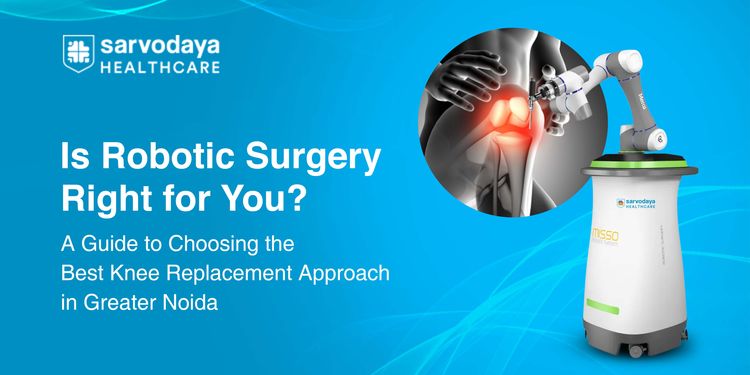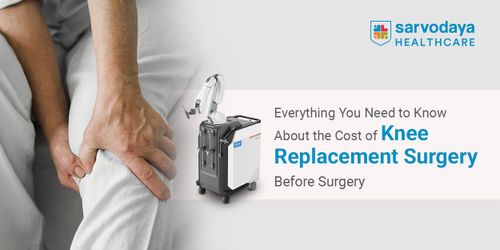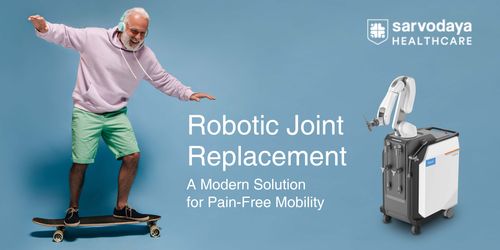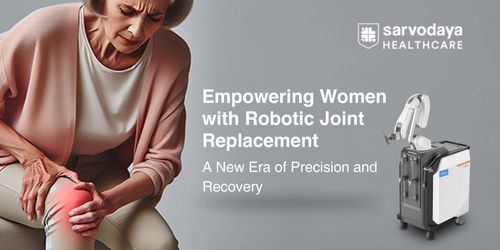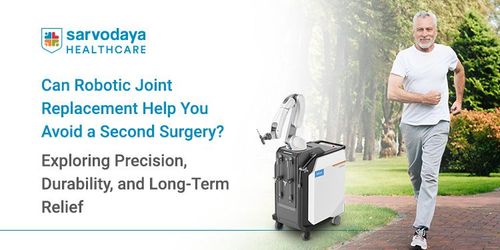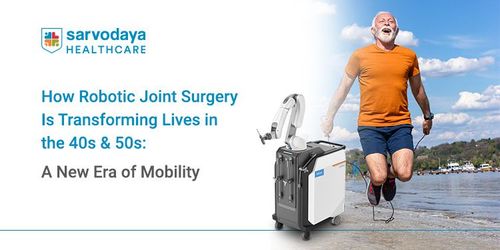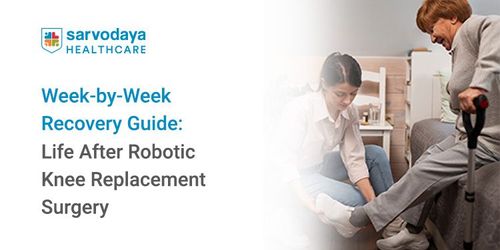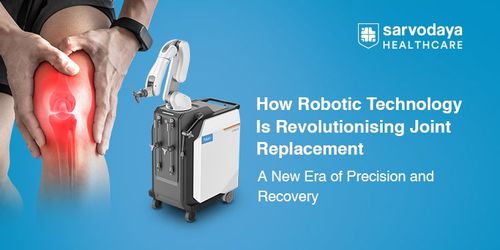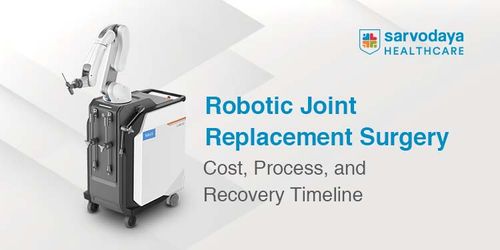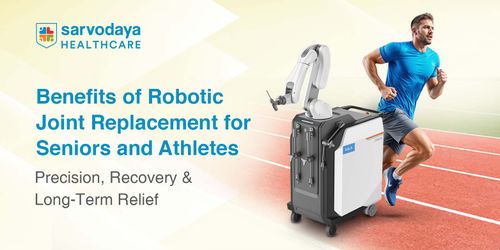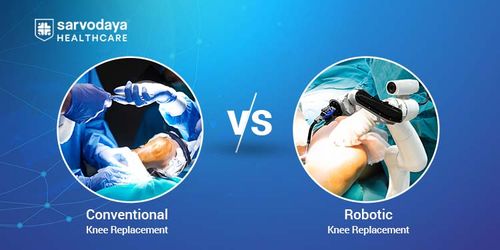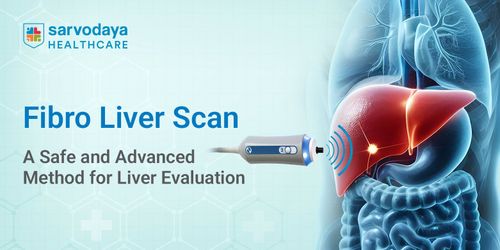Chronic knee pain affects thousands of individuals every year, especially those dealing with arthritis, joint injuries or long-term wear and tear. It not only disrupts mobility but also takes a toll on emotional and mental health. When conservative treatments like physiotherapy or medication fail to offer sufficient relief, knee replacement surgery becomes the most effective solution.
In this blog, we explore the growing use of robotic technology in knee replacement and answer a common question: Is robotic surgery right for me?
Knee Replacement Surgery and Available Options
Knee replacement, also known as knee arthroplasty, is often recommended when knee joints are severely damaged due to osteoarthritis, rheumatoid arthritis or traumatic injuries. The goal is to eliminate pain and restore joint function by replacing the affected parts of the knee with artificial components.
There are primarily two surgical approaches available today, manual and robotic-assisted procedures. Choosing between these requires a thorough knee surgery consultation and a personalised evaluation by an experienced orthopaedic specialist.
Understanding Robotic Knee Replacement Surgery
Robotic knee replacement surgery is an advanced procedure that uses robotic assistance to enhance surgical precision, planning and execution. It begins with a detailed scan of the patient’s knee to create a three-dimensional model. This model enables surgeons to pre-plan the procedure with remarkable accuracy.
During surgery, a robotic arm assists the surgeon in executing the predetermined plan. It helps in removing only the damaged parts of the joint while preserving healthy bone and tissue. This method ensures proper alignment and balance of the knee joint, which are crucial for long-term success.
Robotic vs Manual Decision – How Doctors Choose
Deciding between robotic vs manual methods is a clinical judgement made by your orthopaedic surgeon after a thorough knee surgery consultation.
Several factors influence the recommendation, including:
- Severity of joint damage: Complex deformities may benefit from robotic precision.
- Age and activity level: Younger, more active patients may gain better outcomes from robotic surgery due to improved alignment and joint longevity.
- Bone quality and shape: Robotic systems adapt well to irregular anatomy.
- Previous surgeries or complications: In such cases, manual techniques may sometimes be preferred.
Evaluating Your Eligibility for Robotic Surgery
It’s a common and important question: Is robotic surgery right for me? The answer depends on your overall health, knee condition, expectations from surgery and lifestyle requirements. Not everyone is an ideal candidate, but it offers significant advantages for many patients over traditional methods.
You may be suitable for robotic surgery if:
- You have moderate to severe arthritis or joint degeneration.
- You wish to return to an active lifestyle quickly.
- You are looking for higher accuracy and implant longevity.
- You are medically fit to undergo surgery and anaesthesia.
However, it may not be suitable for patients with severe deformities, infections, or poor bone quality. In such cases, surgeons might still opt for manual techniques. This reinforces the importance of an expert-led knee surgery consultation to evaluate your eligibility thoroughly.
Benefits of Robotic Knee Replacement
If you’re found to be an ideal candidate, robotic-assisted surgery offers several measurable benefits, especially when compared to conventional techniques.
These include:
- Precision and Alignment: The robotic arm ensures implants are positioned exactly where needed. This precision leads to better joint function and fewer complications.
- Faster Recovery: Minimal disruption to surrounding tissues means less post-operative pain and a shorter hospital stay.
- Improved Joint Performance: Patients often report smoother movements and more natural knee function after recovery.
- Longevity of Implants: Well-aligned implants wear out more slowly, reducing the chance of needing a revision surgery later.
- Higher Satisfaction Rates: Studies suggest that patients who undergo robotic knee replacements often experience greater confidence in their mobility and return to routine life faster.
Risks and Limitations of Robotic Knee Replacement
While robotic surgery offers many advantages, it is essential to understand its potential risks and limitations.
Being an advanced procedure, it may not be ideal for everyone and does come with certain considerations like:
- Higher Costs: One of the primary concerns is the robotic knee replacement cost, which may be higher than conventional surgery. However, many hospitals offer affordable packages and EMI options.
- Technical Issues: Though rare, any malfunction in robotic systems could lead to a switch back to manual methods mid-surgery.
- Limited Availability: Not all hospitals or surgeons offer robotic procedures, especially in smaller towns. Finding a premium robotic joint replacement hospital in Delhi NCR is key to receiving this advanced care.
- Learning Curve: The success of robotic surgery is highly dependent on the surgeon’s experience with the technology. Choosing an experienced robotic joint replacement surgeon in India ensures better safety and precision.
Choosing the Right Surgeon and Hospital
The choice of your surgical team and hospital can significantly impact the outcome of your knee replacement. While robotic technology is powerful, its effectiveness depends heavily on the skills of the operating surgeon and the support provided during recovery.
During your knee surgery consultation, consider the following:
- Does the hospital offer pre-operative planning with 3D scans and robotic surgical planning?
- Are personalised rehabilitation programmes included as part of the recovery plan?
- Does the hospital have a proven track record in robotic knee replacement in Faridabad, Delhi NCR?
Conclusion
Choosing the right method for knee replacement is not just a medical decision; it’s a personal one. Robotic technology has changed the landscape of joint replacement by offering greater precision, faster recovery and better alignment.
At Sarvodaya Hospital, Greater Noida West, patients receive comprehensive care from some of the most skilled robotic joint replacement surgeons in India. With advanced robotic systems, custom surgical planning, and a strong focus on recovery, the hospital ensures you get the most out of your procedure. A preventive consultation at Sarvodaya can help identify joint problems early and guide you to the most suitable solution before the pain worsens.
A detailed knee surgery consultation with an experienced orthopaedic specialist will help you understand if you're the right candidate for robotic-assisted surgery, so book your appointment at Sarvodaya Hospital today.


